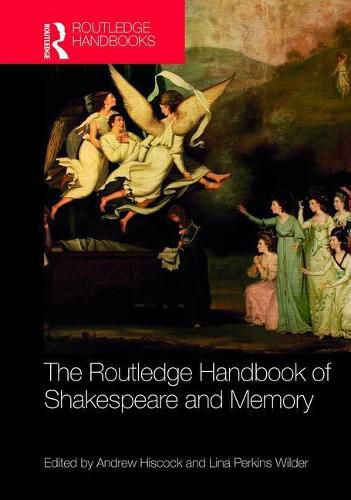Readings Newsletter
Become a Readings Member to make your shopping experience even easier.
Sign in or sign up for free!
You’re not far away from qualifying for FREE standard shipping within Australia
You’ve qualified for FREE standard shipping within Australia
The cart is loading…






The Routledge Handbook of Shakespeare and Memory introduces this vibrant field of study to students and scholars, whilst defining and extending critical debates in the area. The book begins with a series of Critical Introductions offering an overview of memory in particular areas of Shakespeare such as theatre, print culture, visual arts, post-colonial adaptation and new media. These essays both introduce the topic but also explore specific areas such as the way in which Shakespeare’s representation in the visual arts created a national and then a global poet.
The entries then develop into more specific studies of the genre of Shakespeare, with sections on Tragedy, History, Comedy and Poetry, which include insightful readings of specific key plays. The book ends with a state of the art review of the area, charting major contributions to the debate, and illuminating areas for further study. The international range of contributors explore the nature of memory in religious, political, emotional and economic terms which are not only relevant to Shakespearean times, but to the way we think and read now.
$9.00 standard shipping within Australia
FREE standard shipping within Australia for orders over $100.00
Express & International shipping calculated at checkout
The Routledge Handbook of Shakespeare and Memory introduces this vibrant field of study to students and scholars, whilst defining and extending critical debates in the area. The book begins with a series of Critical Introductions offering an overview of memory in particular areas of Shakespeare such as theatre, print culture, visual arts, post-colonial adaptation and new media. These essays both introduce the topic but also explore specific areas such as the way in which Shakespeare’s representation in the visual arts created a national and then a global poet.
The entries then develop into more specific studies of the genre of Shakespeare, with sections on Tragedy, History, Comedy and Poetry, which include insightful readings of specific key plays. The book ends with a state of the art review of the area, charting major contributions to the debate, and illuminating areas for further study. The international range of contributors explore the nature of memory in religious, political, emotional and economic terms which are not only relevant to Shakespearean times, but to the way we think and read now.